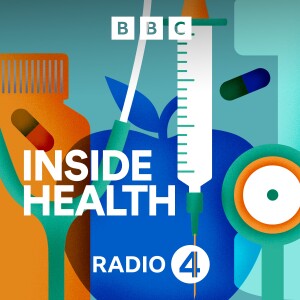
Running, cycling and knee health, Adrenaline and cardiac arrest, Artificial eyes
 2018-07-24
2018-07-24
Download
Right click and do "save link as"
Does running damage your knees? And is cycling any better? Runner, cyclist, GP and Inside Health regular, Dr Margaret McCartney goes to the new Motion Analysis Lab at Glasgow's Jubilee Hospital and asks orthopaedic surgeon and competitive cyclist Jason Roberts about the latest evidence.
Around 30,000 people a year suffer cardiac arrest - their heart suddenly stops pumping blood around their body - and fewer than one in ten survive. Paramedics and ambulance crews will give CPR and use a defibrillator to try to restart the heart, and for the past 50 plus years, most patients will be given a shot of adrenaline too.
But a landmark new study funded by the government and run by Warwick Medical School reveals that giving adrenaline barely increases survival and almost doubles the risk of severe brain damage. Dr Margaret McCartney discusses likely changes to policy with Dr Mark Porter.
It's said that eyes are the windows to the soul - and certainly looking into other peoples' is the key part of human interaction. But what if one of yours isn't real? Sixty thousand people in the UK have an artificial eye and Europe's largest maxillo-facial laboratory at Queen Victoria Hospital in East Grinstead offers a bespoke service where specialists make individual eyes from live sittings. Susan lost one eye as a child and she tells Mark that her latest prosthesis is her favourite. Why? Because it's almost half the weight of eyes she's had fitted before. Dr Emma Worrall, principal prosthetist, has invented a lighter sphere. In a lightbulb moment sitting in a café stirring a sugar cube into her coffee and watching it melt, Emma tells Mark that she realised she could build the plastic sphere around sugar, drill a tiny hole, then melt the sugar out of the middle! Twenty patients at the hospital are now benefiting from lighter eyes (which means less surgery). And there's another plus. The new eyes float in the swimming pool and the sea!
Producer: Fiona Hill.
view more
More Episodes
Cervical screening, blood donation & measles
 2022-03-01
2022-03-01
 2022-03-01
2022-03-01
Rapid genome sequencing in the clinic
 2022-02-22
2022-02-22
 2022-02-22
2022-02-22
Can I take HRT forever & hydration myths
 2022-02-15
2022-02-15
 2022-02-15
2022-02-15
Pig organs for transplant patients
 2022-02-08
2022-02-08
 2022-02-08
2022-02-08
New therapies for sickle cell disease
 2022-01-25
2022-01-25
 2022-01-25
2022-01-25
Asthma inhalers and Covid antivirals
 2022-01-18
2022-01-18
 2022-01-18
2022-01-18
Omicron
 2022-01-11
2022-01-11
 2022-01-11
2022-01-11
New Year's Resolutions
 2022-01-04
2022-01-04
 2022-01-04
2022-01-04
Prediabetes, Experiments in zero gravity
 2021-11-02
2021-11-02
 2021-11-02
2021-11-02
PPE waste and blood test tube shortage
 2021-10-26
2021-10-26
 2021-10-26
2021-10-26
Gene Silencing Treatments
 2021-10-19
2021-10-19
 2021-10-19
2021-10-19
Ultra-processed vegetarian & vegan foods
 2021-09-28
2021-09-28
 2021-09-28
2021-09-28
The vulva & your GP medical records
 2021-08-10
2021-08-10
 2021-08-10
2021-08-10
012345678910111213141516171819
Create your
podcast in
minutes
- Full-featured podcast site
- Unlimited storage and bandwidth
- Comprehensive podcast stats
- Distribute to Apple Podcasts, Spotify, and more
- Make money with your podcast
It is Free
- Privacy Policy
- Cookie Policy
- Terms of Use
- Consent Preferences
- Copyright © 2015-2024 Podbean.com


